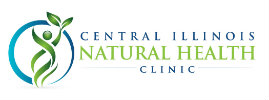…is that most what you hear about them is exaggerated. I mean, what are your risks, really?
There are a lot of claims for preventative therapies out there, both conventional and alternative. The first step to deciding what is best for your health is to really understand the risk vs. benefit, or cost vs. benefit.
Let’s say there’s new nutritional supplement (or drug) that has been found to decrease your risk of a certain type of cancer by 50%. That is a huge number, and seems like everyone should be taking it. Why not? Well, let’s take a closer look. That 50% is a decrease in relative risk — meaning that the odds of getting that cancer are half of what they ordinarily would be. So if your risk would normally be 0.2% (2 chances in a thousand), this new supplement cuts your risk to 0.1% (1 chance in a thousand). The absolute risk reduction is only 0.1% (0.2% – 0.1%). If this supplement costs $100 per month, it might seem worth it if you look at the 50% number. But when you realize that you’re really only decreasing your absolute risk by 0.1%, suddenly the cost seems to outweigh the benefit.
Many health conditions contain quite an element of fear. It’s important to try to look beyond this. For example, a lot of people have a fear of flying — no surprise, given the thought of hurtling through the air in a heavy metal cylinder 30,000 feet above the earth. However, when you look at the risks, you are much more likely to get injured or killed in your own car than in a commercial airplane. Similarly, some scary diseases carry a risk so close to zero, that it’s just not worthwhile to invest much in prevention.
So anytime you hear SHOCKING claims about decreased health risks, ask these questions before jumping at a new preventative therapy:
- What are my odds of getting that condition in the first place?
- Are the claims based on valid research? (I.e., good scientific method, performed by a third party rather than the manufacturer)
- Are the statistics quoted for relative risk (most of the time), or absolute risk?
- Was the research done on people who match your demographics? (Risks are often different for men and women, different ethnic groups, etc.)
- Most importantly: are there any simple things I can do to reduce my risk instead?
- If you’re still smoking, don’t bother with any supplements for cancer prevention.
- Brushing and flossing your teeth are probably more effective for heart disease prevention than antioxidant supplements.
- Reach for the fruits and veggies before the next miracle pill.
- Many of you already know what my favorite supplement is.
